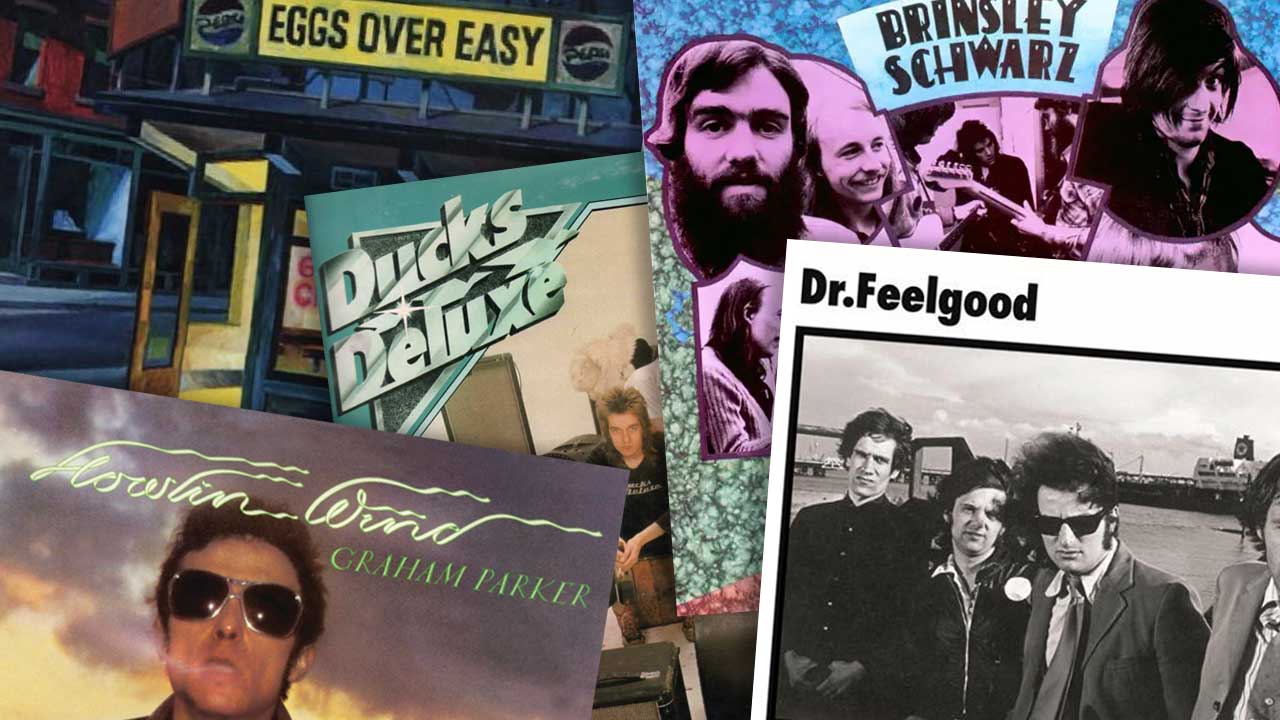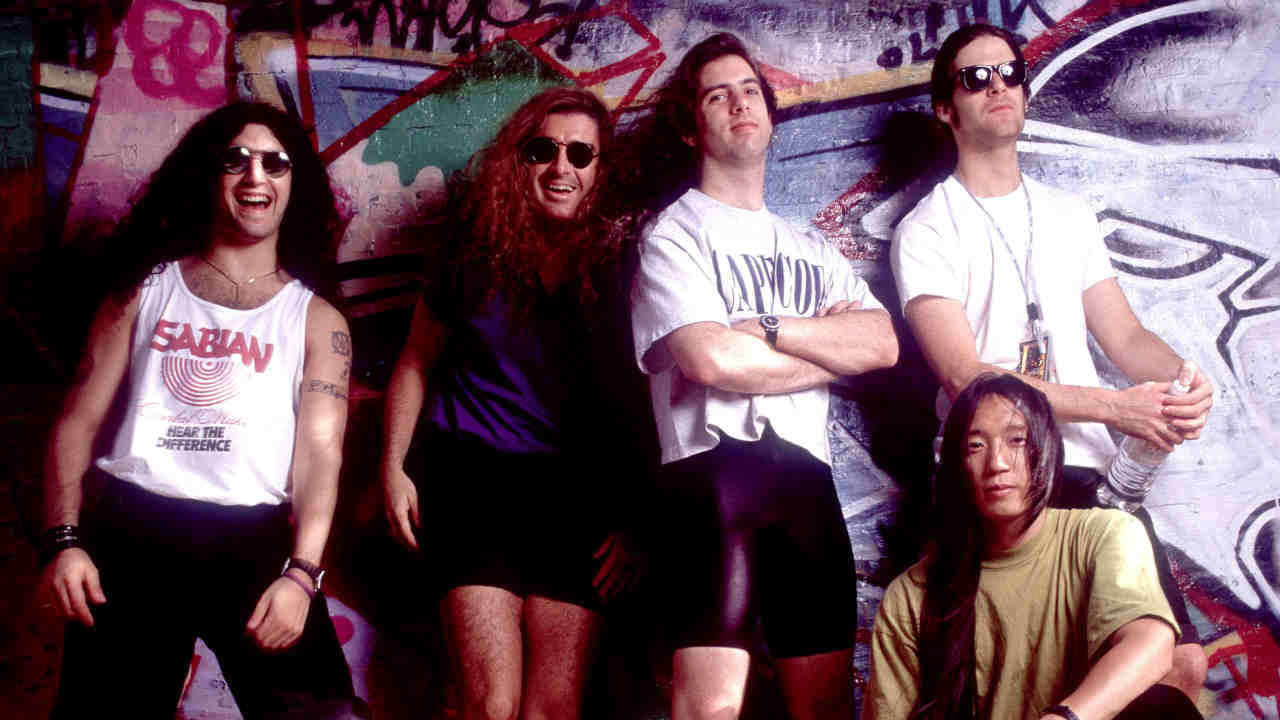A beginner’s guide to pub rock in five essential albums
Pub rock: a live-wire, booze-driven reaction to the pomp and excesses of prog and the perceived artifice of glam

Historically, punk may be regarded as the movement that sought to kick over the statues and destroy all that went before, but another, considerably less heralded, 1970s subgenre also concerned itself with a changing of the guard. Pub rock was, in its own way, a reaction to both the pomp and excesses of prog, and the perceived artifice of glam.
The rootsy, back-to-basics philosophy thrived, albeit relatively briefly, in the unassuming back rooms and corner stages of taprooms and taverns, hence the name (one of its key locales, Dingwalls in Camden, London, advertised itself as the home of “rhythm and booze”). Yet, within those humble surroundings a coterie of like-minded souls and skillful players celebrated a wide range of musical styles, and in the manner of mouth-watering after-hours takeouts, made some enduring records for punters to enjoy at home.

Eggs Over Easy - Good ‘N’ Cheap (1972)
Although pub rock was a British (and primarily London) movement, its foundations were laid by this trio of New York musicians who, having moved to the UK to record an album, took up residency at the Tally Ho pub near their digs in Kentish Town, eventually playing four shows a week. Former Animals bassist Chas Chandler added them to his management stable, alongside Slade, and secured a deal with a brewery for the band to play several other hostelries across the capital.
The group’s default setting was country rock, but with a repertoire of close to 100 songs to choose from, split evenly between covers and originals, they were equally at ease playing rockabilly, R&B, soul and gritty garage rock. Their sole LP stuck to self-penned material, flitting between partying-hard hoedowns, tear-stained lovers’ laments and odes to the joys of music itself. Nonetheless, its melting pop of styles represents a shorthand for the genre-hopping that arguably made pub rock difficult to define succinctly, but would spur on many of the other musicians featured in this piece; regular faces in the audience wherever “The Eggs” plied their wares.
Brinsley Schwarz - Nervous On The Road (1972)
Notorious for a lavish press junket that went disastrously wrong when a charter plane full of UK journalists suffered engine trouble on its way from London to the group’s US live debut in New York, the actual music Brinsley Schwarz made is often overlooked. Regarded by many as the definitive pub rock outfit, the sepia-toned Americana of The Band and the close harmonies of Crosby, Stills & Nash were the chief touchstones for the group’s earliest releases, but by the time of this fourth LP they were painting with a much broader palette.
Herein lie affectionate Buddy Holly pastiches (It’s Been So Long), finger-clicking pop-soul (Surrender To The Rhythm), blues-rock (the title track) and excursions into New Orleans R&B (a cover of Allen Toussaint’s I Like It Like That). All performed by exemplary musicians, but the secret weapon was the fast maturing songwriting chops of bassist and singer Nick Lowe, most notably on the blue-eyed soul of Don’t Lose Your Grip On Love and Brand New You, Brand New Me and the Merseybeat approximations of Why Why Why Why Why.
Ducks Deluxe - Ducks Deluxe (1974)
Taking their name from a motorway service station fruit machine, Ducks Deluxe favoured a fiery rock‘n’roll sound which, at its heart, owed a debt to American bands such as Creedence Clearwater Revival and the Flamin’ Groovies. One of the most energetic live bands on the pub rock scene, among the suitors in the bidding war to make them stars were Mick Jagger and Keith Richards, eager to add “The Ducks” to their relatively new Rolling Stones record label.
The band ultimately opted for RCA, believing they’d receive more hands-on attention, and their self-titled debut album is solid distillation of their stage performances; Fireball is a grimy hybrid of the Stones and Lou Reed, Please Please Please checks in on Moptop era Beatles, and a cover of The Valentinos’ It’s All Over Now seethes with menace. Major success eluded them, but guitarist Nick Garvey reached the UK Top 10 with The Motors a few years later.
Dr Feelgood – Down By The Jetty (1975)
Howling, scowling R&B of the highest order, Dr Feelgood’s formidable stage reputation was built on the interplay between gruff-voiced singer Lee Brilleaux and the maniacal moves and frenetic fretwork of guitarist Wilko Johnson, the latter also the band’s chief songwriter. Their debut album resolutely played to those strengths, producer Vic Maile (who’d cut his teeth as an engineer on 1960s hits by The Animals and the Dave Clark Five) opting to replicate the group’s live sound as close as possible.
Recorded in glorious mono, Johnson originals like Roxette, She Does It Right and All Through The City sound like venomous overhauls of vintage Chicago blues (a cover of John Lee Hooker’s Boom Boom is included for good measure), filtered through the working-class street smarts of his Canvey Island homebase. Less than two years later, the Feelgoods’ live album Stupidity would replace Abba’s Greatest Hits at Number One in the UK charts.
Sign up below to get the latest from Classic Rock, plus exclusive special offers, direct to your inbox!
Graham Parker & The Rumour - Howlin’ Wind (1976)
Once dubbed by the music press as the “Surrey Springsteen”, referencing the location of his petrol station job before turning pro, Parker’s songs on this debut are more accurately informed by his twin obsessions for Bob Dylan and Van Morrison. The former is evident in the lyrical imagery of the title track and what would become his signature number, Don’t Ask Me Questions, while the latter’s fingerprints are liberally daubed on the ramshackle soul of Silly Thing, White Honey and Lady Doctor.
Elsewhere, Between You And Me is closer to the mellow, contemplative Laurel Canyon vibes of, say, Jackson Browne, while Parker’s growing reputation as the scene’s “angry young man” largely stems from his tirade against a failing education system on Back To Schooldays. Knocking it all into shape is what amounts to a pub rock supergroup, featuring a refugee from Ducks Deluxe, two from Brinsley Schwarz, and a third member of the Brinsleys (the aforementioned Nick Lowe) in the producer’s chair.
Terry Staunton was a senior editor at NME for ten years before joined the founding editorial team of Uncut. Now freelance, specialising in music, film and television, his work has appeared in Classic Rock, The Times, Vox, Jack, Record Collector, Creem, The Village Voice, Hot Press, Sour Mash, Get Rhythm, Uncut DVD, When Saturday Comes, DVD World, Radio Times and on the website Music365.
